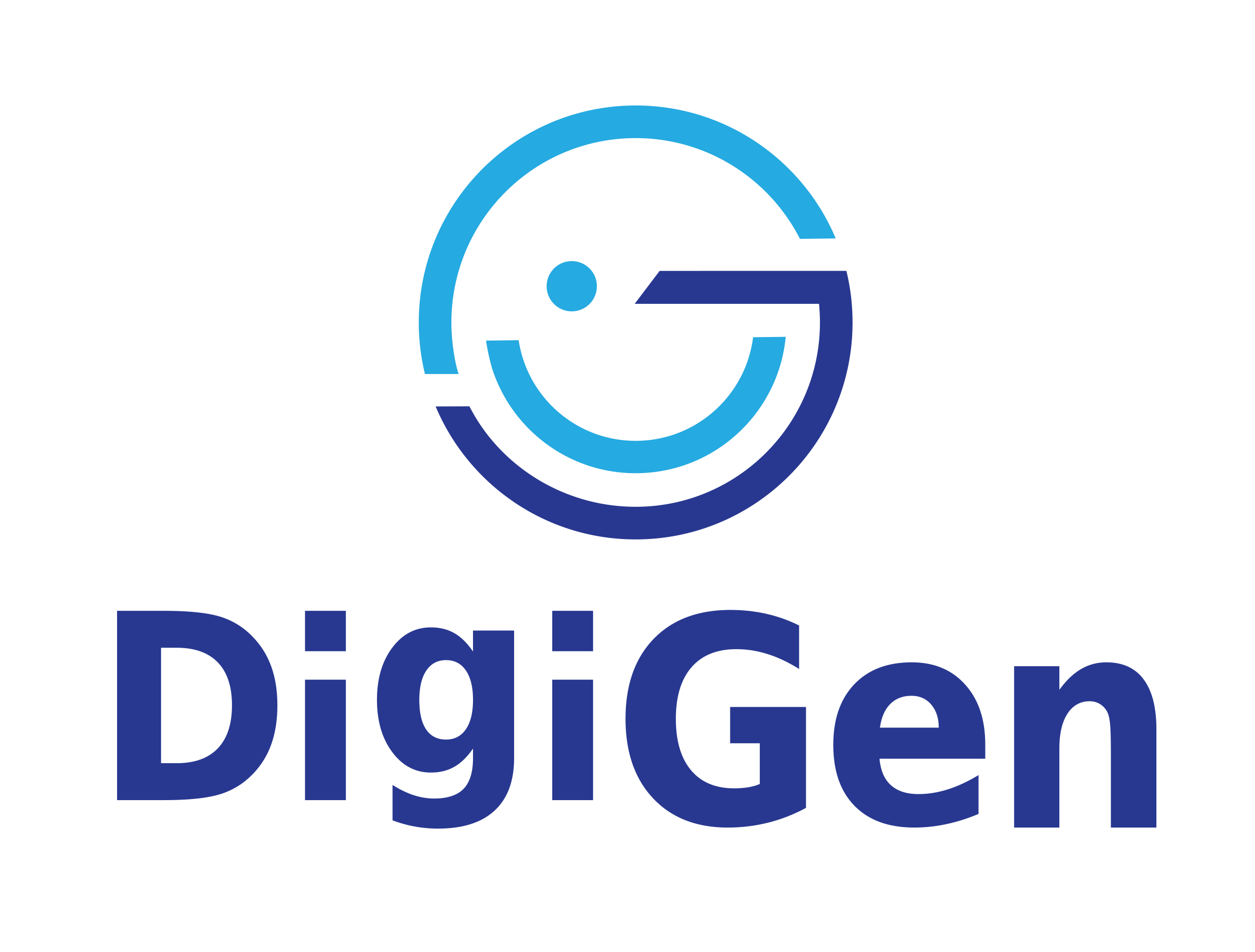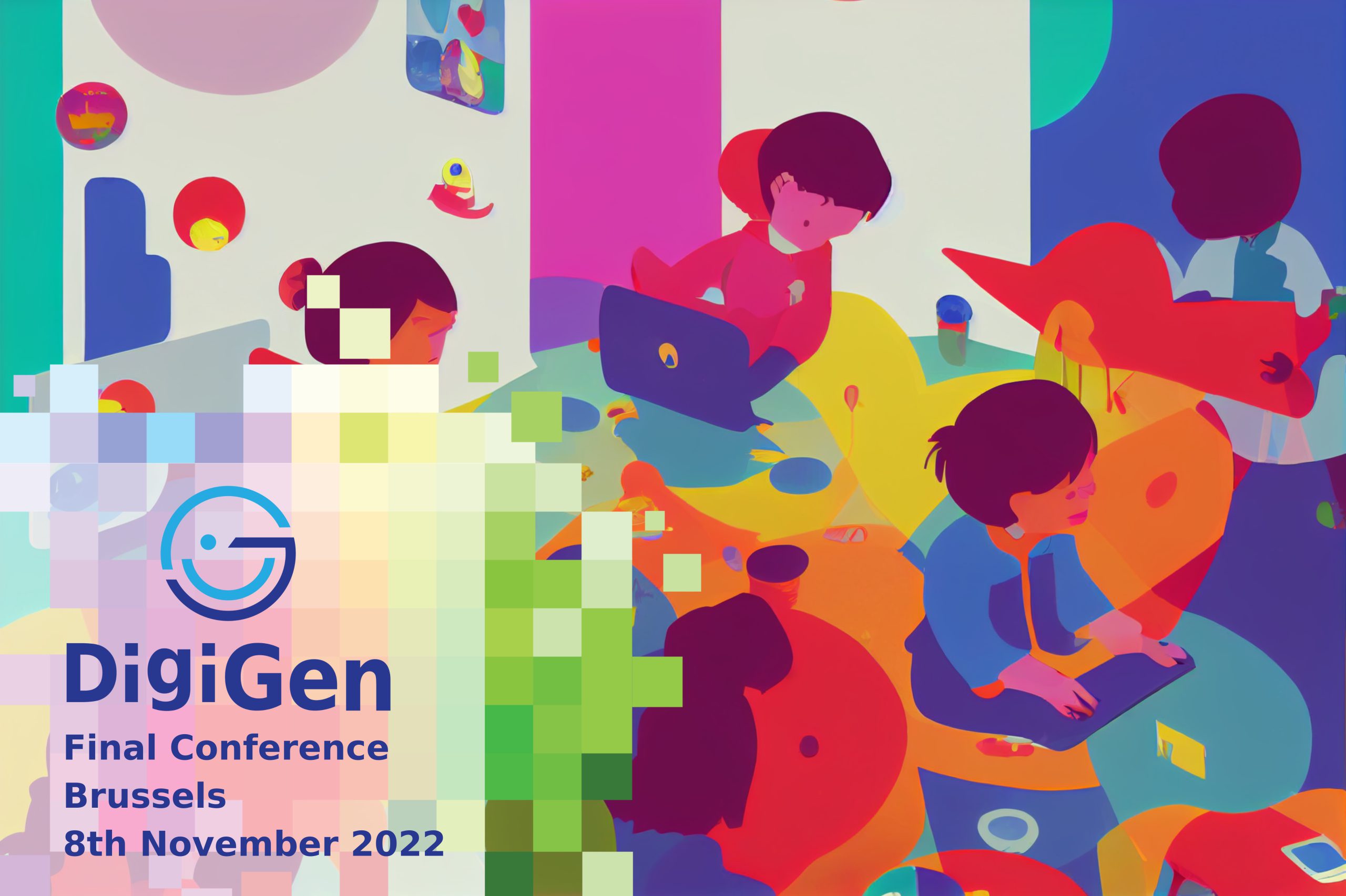Following 3 years of research on the impact of digital transformations on children and youth, the “Digital Generation”, fresh insights and recommendations will be presented at the final conference of the DigiGen Horizon 2020 project on 8th November in Brussels with 100 researchers and stakeholders (including children and young people) from across Europe and beyond. DigiGen’s approach to developing policy recommendations acknowledges the need for proper governance distribution to support children in the digital era: through regulation, industry self-regulation, and awareness raising.
DigiGen starts putting a language to what we see, as a society, about children and young people’s everyday digital realities. It is clear that the digital generation are active digital citizens who can be resilient and responsible participants in the digital civic space if adequately supported and recognised accordingly across their ecosystem: through schools, leisure time, families, and other civic spaces. This can be done by employing a more holistic approach to digital access and competency.
________________
DigiGen research has identified two main areas where interventions can support the development of children and young people’s resilience and mitigate vulnerabilities introduced or enhanced by the digital environment:
- Access (to digital devices, connectivity, and to a digital environment that enables their active participation as digital citizens)
- Competency (digital skills, media literacy, and social competences)
The formulation of recommendations following DigiGen findings builds on the belief that reducing inequalities and providing a beneficial experience of ICT use is a collective responsibility between government, industry, and civil society. What is more is that it is necessary to find a balance between what can be expected from an individual child or young person in terms of building resilience and the responsibility to eliminate potential risks and take advantage of opportunities in the digital environment. Therefore, DigiGen has considered a balance of three areas of action: regulation (EU and national policy), industry self-regulation (primarily technology companies), and awareness raising (families, educators and civil society).
Concerning a holistic approach to digital access, policy makers can ensure that children are not regulated out of the digital civic space by obligations set out in online safety or data protection legislation. As architects of digital spaces, technology companies can ensure that their platforms and services allow for children’s meaningful participation and develop features which support parents and teachers in guiding their use of digital technologies. Civil society and educators (formal and non-formal) have a role to play in supporting families to balance the rights of the child to participate as fully as possible in the civic space whilst also being protected from undue harm.
DigiGen findings on digital competences show how developing children’s broader social competences can contribute to supporting their development as digital citizens. Policy makers must design education policy which supports the development of children and young people’s digital skills, media literacy, and social competences fit for their digital realities and futures. Technology companies can create mediation tools which move beyond screentime or application restriction and instead support families in developing spaces of dialogue to build social competences for the digital world. For example, solutions which help children and parents negotiate how they integrate digital technologies into family life or allow different generations to engage in a digital activity together such as gaming. Finally, DigiGen findings highlight the importance of healthy and sustainable relationships between children and young people and those who care for them (teachers, parents, and others) to support them through the ups and downs of a childhood increasingly influenced by technological transformations – an approach which can be explored through schools and different public and civil society programmes for parents, children, and educators.
ENDS//
________________
About DigiGen
DigiGen is a European research project that, from 2019 to 2022, has developed significant knowledge about how children and young people, a group growing up today often referred to as the Digital Generation, use and are affected by the technological transformations in their everyday lives. The research has uncovered both harmful and beneficial effects of technology in the everyday lives of children and young people. This includes a focus on education, family life, leisure time, and children and young people’s civic participation. DigiGen is developing effective social, educational, health and digital policies and practices in collaboration with national and international stakeholders. The project receives funding from the European Commission’s Horizon 2020 programme and ran from December 2019 until November 2022. The work of DigiGen is conducted by a consortium consisting of nine members across nine different European countries: Norway, Greece, United Kingdom, Austria, Spain, Germany, Romania, Estonia, and Belgium.
DigiGen Working papers
ICT usage across Europe- a literature review and an overview of existing data
Digitally deprived children in Europe
Online political behaviour and ideological production by young people
Multimodal research: Youth becoming digital citizens
DigiGen Policy briefs
Digital diversity across Europe
Digital citizenship policy analysis (Estonia, Greece and the UK)
Recognising digital technologies as a key part of ‘doing family’ in the digital era

